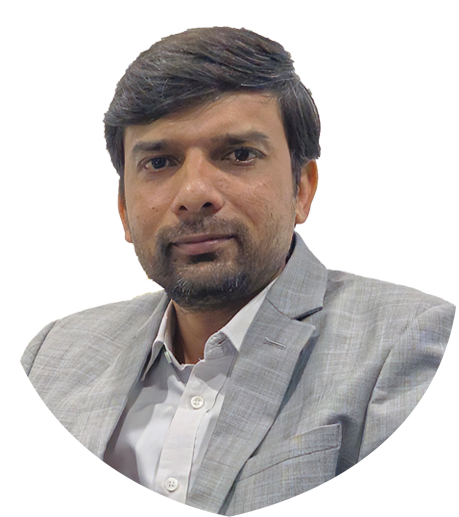Bachelor of Engineering
& Technology
Engineering

Building Tomorrow’s Technology Leaders Today
Bachelor of Engineering
& Technology
Engineering

Building Tomorrow’s Technology Leaders Today

Bachelor of Engineering
& Technology

Building Tomorrow’s Technology Leaders Today
Bachelor of Engineering
& Technology

Building Tomorrow’s Technology Leaders Today

Electrical Engineering is one of the largest and fastest growing fields which generally deals with the
study and application of energy- generation, transmission and distribution, electrical motors and
drives, measurement, control and automation. The mission of the department is to offer quality
instruction and undertake scholarly research that engages each student in a challenging electrical
engineering education and prepares graduates for the full range of career opportunities in the high
technology marketplace, enabling them to reach their fullest potential as a professional and as a
member of society. It is also one of the most challenging branches with a blend of challenging subjects
like Engineering Mathematics, Circuit and Networks, Power System, Control System, Power Electronics and
Drives, Switchgear and Protection, Renewable Energy etc.
Electrical Engineering has a wide scope in today’s industrial requirement era because without energy,
survival of anything is not possible. Due to diversities in industry requirement, electrical
engineering has been subdivided into various specializations like High Voltage Engineering, Power
System Engineering, Renewable Energy and Technology, Control and Automations, Power Electronics and
Drives. Each of these fields of Electrical Engineering has its own relevance and role in the
industry.
The department also offers Post Graduate programmes in Electrical Engineering (Power System),
Electrical Engineering (Power Electronics and Electrical Drives) and Electric & Hybrid Vehicle.
The Three Layers of Learning ensures that all learners acquire key technical skills and soft skills and possess all the necessary attributes that ensure a successful life.
This is the first stage where a student is taught to be a lifetime learner. The programme encourages critical thinking, collaboration, self-awareness, bouncing back from failure, identifying opportunities, and decision-making; all life skills are taught through stories, activities, and discussions.
This is the first stage where a student is taught to be a lifetime learner. The programme encourages critical thinking, collaboration, self-awareness, bouncing back from failure, identifying opportunities, and decision-making; all life skills are taught through stories, activities, and discussions.
Department Vision
To empower electrical engineering students with knowledge, skills, and innovation to contribute to industry and society
Department Mission
Program Educational Objectives (PEO)
Program Specific Outcomes (PSOs)
Career Opportunities
Electrical Engineering is a versatile field, and graduates with a degree in Electrical Engineering have a wide range of career opportunities in various industries. Here are some common career paths for individuals with a degree in Electrical Engineering:
These are just a few examples, and the field of Electrical Engineering continues to evolve, creating new opportunities in emerging areas such as artificial intelligence, internet of things (IoT), and smart systems. Graduates can find roles in industries such as telecommunications, energy, healthcare, manufacturing, and more.
Student Outcomes
In Marwadi University – one of the Best Engineering Colleges in Rajkot we have devised a curriculum that provides better learning opportunities and is targeted to fulfill the programme objectives with following student outcomes:

Electrical Energy is the only form of the energy which transmits over
distance. Electrical Engineering is one of the oldest branches and is the base for many technological
streams. We cannot assume our life without electricity. Electrical Engineers can work with Government
sectors, private companies, as consulting engineers or as entrepreneurs in the field of research,
design, projects, production, maintenance and testing etc. Requirement of energy audit, renewable
energy sources, smart systems, automation etc has opened up new exciting careers for electrical
engineers.
Objective of the Electrical Engineering Department, Faculty of Technology is to prepare graduates as
per industrial and societal needs. Graduates of the department will be skilled to work with the latest
technology including DSP, Microcontrollers, Power Electronics, Renewable, modern computer tools etc. To
achieve this goal, the department has a team of highly qualified, committed and self motivated learners
who will nurture the career of young and enthusiastic students as teacher, guide and mentor.
Laboratories are equipped with equipment that are in line with current industrial trends. Teaching
-learning process is well defined and is student centric. The department will constantly interact with
scholars from industry , research organizations and academia to produce globally competent and locally
relevant engineering graduates. Above these, the department will nurture human values, sense of
responsibility and ethics for all stakeholders.
















































Participating Companies
Highest Salary Offered
Students bagged a package 5 LPA+
Industry Associations for Placements & Internships
Follow our simple step-by-step guide to complete your application with ease

Register or Login

Complete your Application

Upload supporting documents

You are on the path to DISCOVERY

Fees Payment